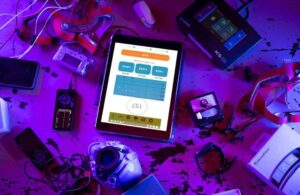
Chemical engineering professor Ali Cinar leads the project to ease the burden on those with type 1 diabetes. NIH funding covers four years for developing the machine learning system. The researchers aim to integrate it into Cinar’s artificial pancreas system to enhance accuracy.
According to a press release, the project analyzes past behavior through machine learning. This personalizes the device’s decision-making algorithm and improves its ability to determine behaviors that may impact glucose levels. It addresses the delay between the delivery of insulin and when it begins to act.
“If someone eats lunch at noon every day and the meal has usually 20 to 30 grams of carbohydrates, then if their current blood glucose level is not very low, at 11:45 we could say, ‘Everything indicates that the trend of this day is a typical weekday for this person, so let’s give them not the whole dose of insulin, but a little bit of it so that it will blunt the meal effect on the glucose,’” said Cinar.
Cinar and the team developed the algorithms in collaboration with associate professor of computer science Mustafa Bilgic, who intends to help match the pattern of the current day to individual behavior patterns.
Researchers expect the system to assign a probability to the likelihood of a person eating lunch soon based on their behavior. It then administers an insulin dose accordingly and continues to monitor glucose levels. If the levels rise as expected because a person begins eating, it administers additional insulin.
Cinar aims to design the artificial pancreas to sense and incorporate the presence of everyday factors in insulin dosing in automated decision-making. Stress and exercise impact glucose levels in opposite directions. A system inferring physical activity based on heart rate may assume the person is exercising. It may reduce insulin and increase blood glucose further, making matters worse for a person under stress. Additionally, multiple factors may occur simultaneously.
“That’s why we really changed our focus from just detecting exercise to detecting the state of the person,” said Cinar. “And it’s becoming more and more interesting and challenging.”
Enough historical data could even lead to predictions of behaviors for people with seemingly irregular habits.
“The advantage of powerful machine learning tools is to be able to tease out the secondary relations that exist. No matter how erratic people claim that their behavior is, there are always certain patterns that can be captured,” said Cinar. “It could be five patterns for someone who is very routine-based and 15 patterns for someone less routine-based. The system can look at how the day is developing on and then look at the dictionary of patterns to say, ‘Oh, this is similar to pattern No. 17, so let’s assume that the rest of the day will go accordingly.’”

